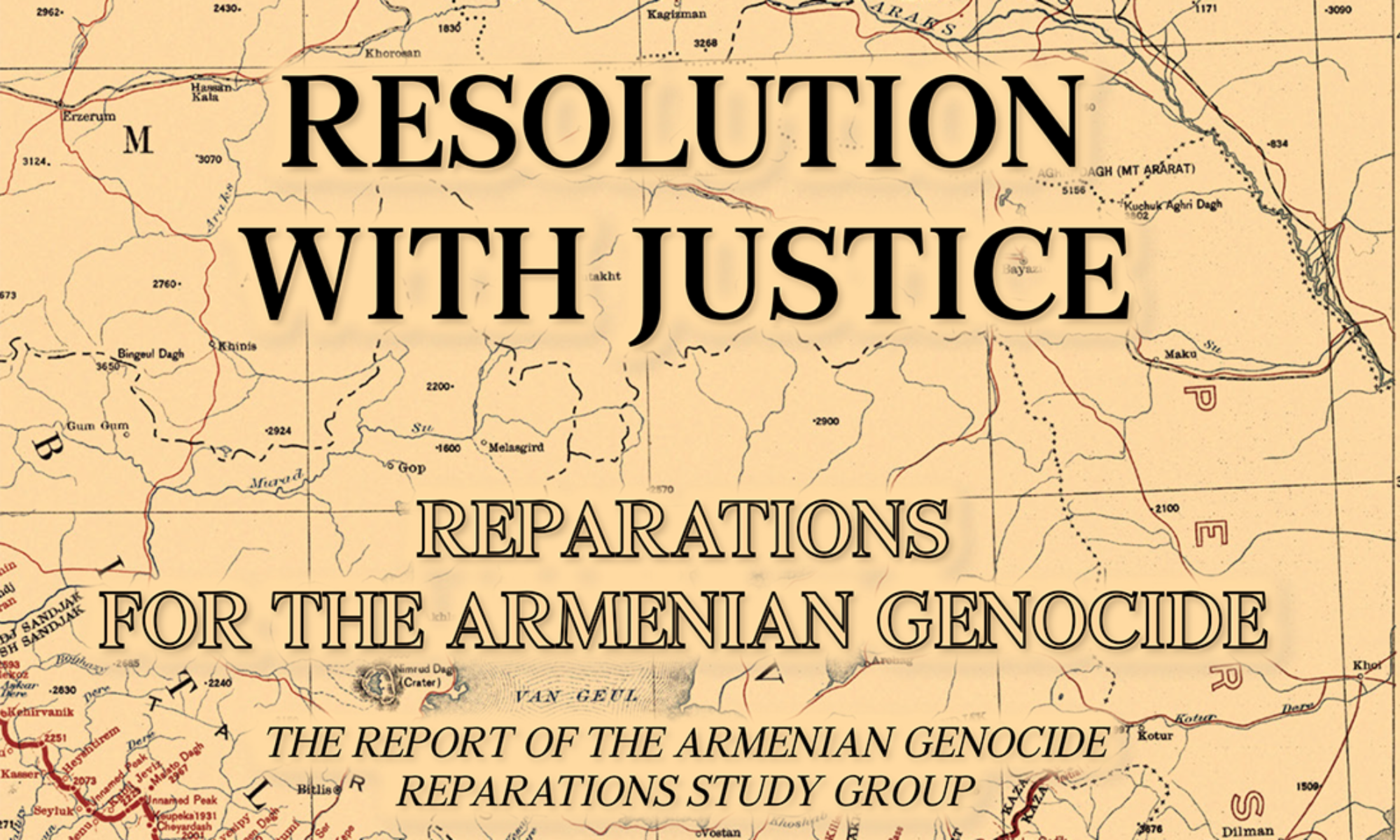By Kimberly Brothers-Caisse
Worcester State University

The Armenian Genocide memorial complex on the hill of Tsitsernakaberd in Yerevan, Armenia.
After 100 years of denial, Philosophy Professor Henry Theriault hopes the release of the Armenian Genocide Reparations Study Group’s final report marks a turning point for Turkey to finally take responsibility for the atrocity.
This is the first time a comprehensive report on the Armenian Genocide has been published with detailed reparations and parallels to other human-rights struggles, notes Theriault, the chair of the expert panel convened in 2007 for the project, which was funded initially by a grant from the Armenian Revolutionary Federation-Dashnaktsutyun. The report was a response to advocates asking scholars to “make concrete proposals based on academic points” for policy makers.
While the report focuses on the Armenian case, it is firmly rooted in the global context, in which many victim groups now struggle for reparations. “It was important to us not to treat this as an individual group, but to put it into the broader international context,” he explains. “I think this report is effective in showing that the issues we raise are interconnected human-rights issues. We also wanted to offer some options we think are legitimate ways to proceed for any group facing a similar history.”
At issue is the Turkish government’s refusal to acknowledge and make reparations for the genocide of as many as 1.5 million Armenians living in Turkey from 1915-1923. (Another million Armenians fled the country, effectively eliminating the Armenian population in Turkey.) Assyrians and Greeks also were targeted.
Theriault, along with co-authors Alfred de Zayas, Jermaine McCalpin, and Ara Papian, want the report to “ultimately develop a new model for truth and rectification.”
“The idea is that you want a mechanism to recognize what happened and that leads the perpetrator group to acknowledge and come to grips with what happened,” Theriault says.
Our report “shows good faith in discussing [the genocide] publicly and addressing the future in a way that helps Armenians and Turks at the same time,” he adds. “What has emerged in Turkey on the Turkish progressive side is acknowledgment of how fundamental this issue is and a discussion about how to proceed.”
Fate may have played a role in the timing of the report’s release. While the four authors had hoped to publish it well before this year, its release coincided with the 100th anniversary of the genocide—garnering additional publicity for the call for reparations. International attention on the issue was particularly high as the European Parliament, Germany, Austria, and Pope Francis acknowledged the genocide following the report’s release.
“It was incredibly important for him to take such a public stand,” Theriault says of Pope Francis’ comments during a Mass at St. Peter’s Basilica to commemorate the 100th anniversary. “I think it raised the moral bar and renewed the acceptability of this. Soon after, Germany and Austria publicly recognized it.”
In addition to making historic, legal, and political arguments for reparations, the report’s authors raise ethical considerations that also can help bring about necessary legal and political changes.
It is often said that power politics are all that matter in cases of mass violence, and reparations are impractical when not backed by power. But, according to Theriault, ethical concerns can drive dramatic political change. “Surely Mandela, Ghandi, MLK were all told the same thing: Be practical and don’t expect a full end of oppression. Thankfully they didn’t listen, and continued their struggles, with great success,” he says.
The report was written from the premise that “most people want to be good people, and if you show them a problem in their history and where they have to start in order to really be good people, they will begin to accept responsibility,” he says.
Theriault credits the landmark 2005 WSU conference on the global reparations movement, which was co-organized with famed South African human rights activist and poet Dennis Brutus, as the inspiration of his later work on this issue.
The moral issues surrounding genocides resonate with Worcester State University students, Theriault says, adding that the Philosophy Department’s genocide studies and mass violence against women classes routinely run at full capacity. In some cases, students have organized ways to raise awareness based on what they study in class, which “shows that regardless of what they’re studying, it’s important to them to learn about these issues.”
The culmination of eight years of work, the “Resolution with Justice: Reparations for the Armenian Genocide” report was released in English and Armenian. There are plans for the executive summary to be translated into French, Russian, Arabic, and Turkish, and for the entire report to be translated into Spanish.
